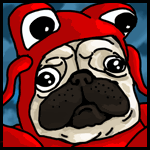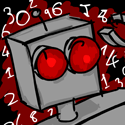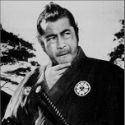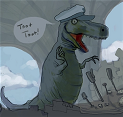|
The first book also improves in retrospective. Characterization and writing as well. It just takes time to align with it and understand where the good has to be found. It just lends itself very well to prejudices and superficial analysis. There very good stuff in that first book, including good writing and depth of characterization with plenty of nuances (a good example was brought up by Erikson himself: http://lifeasahuman.com/2010/arts-culture/creativity/steven-eriksons-notes-on-a-crisis-back-to-the-craft-of-writing/ ).
|
|
|
|

|
| # ? Apr 29, 2024 11:25 |
|
Thinking about it, this is the aspect that is the hardest and takes the most time to decode. Lots and lots of the most showy aspects of GotM, those that catch the eye of a new reader who has no idea of what he's getting himself into (and so can more easily pinpoint), are aspects that are extremely self-conscious. The thing is, on a first approach one doesn't know how to measure what he's reading. And a lot of it seems extremely childish or naive or lacking any sort of consistency. So a reader assumes that it's the kind of wrap around the thing: Self-absorbed D&D adventure writ large and made into a book. That's the actual problem beside the plot being convoluted or not well explained. Many of those aspects and tropes are used by Erikson consciously to toy with them, build or meet expectations to then overthrow them or drag in a complete new direction. That superficial, showy layer is used to please, like a form of fanservice, but is also used ALWAYS extremely self-consciously and serving deeper ends and purposes, and being thought thoroughly and to the extreme. Round and round, at various levels of observation. Reminds me another typical post-modern example: Evangelion. That also digs deep in all sort of tropes and canons while using them, through awareness of its own medium, to build something completely new. You can think it's "pretentious" but this post-modern habit of playing self-consciously with a specific medium is what builds this (Malazan) series. So all those elements "taken" from RPG or other fantasy settings, they are taken with full "awareness" of what they are, their naivety and whatnot. It's not like the writer is packing them in without a reason. In the end you have to trust the writer, and not let appearances deceit. It's a long work. Obviously one wonders if "it's worth it", but that's not something that one can tell you. It requires the "faith" part.
|
|
|
|
Abalieno posted:In the end you have to trust the writer, and not let appearances deceit. It's a long work. Obviously one wonders if "it's worth it", but that's not something that one can tell you. It requires the "faith" part. Steven Erikson spotted.
|
|
|
|
Dyscrasia posted:The first book does get better though, but yea, really takes off with the second book. I'd say its worth trudging through the first just to give the second a chance. This is sort of the crux of what I was getting at. Thank you! I think I'll work my way through the first book and see how I feel about it by the end. WeWereSchizo posted:Because they actually have personalities that aren't defined by their D&D class. I would be inclined to give the author the benefit of the doubt on that one, but neither of the characters has a personality that suggests they would be catty or sassy in the way that "be that way" connotes. I'd also to suggest to you that people's professions frequently play a large role in how they are socialized, even in adulthood; I don't think you'll find many marines, cops, or firefighters who say diffident poo poo like "be that way". Deviating from a reader's expectations doesn't qualify as good characterization if it's unearned and unsupported. The link to the interview with Erikson is actually pretty enlightening. Without judging the remaining books in the series, it looks to me like he's at least somewhat hostile to his readers. Erikson posted:Some beginning writers create these characters and then manipulate them solely to help guide along the hero(es). Might as well be automatons. I used to set up players in my role-playing games with just that scenario – tavern, some guy in the corner looking mysterious, and off the players would troop, sit down at his table, and start up a conversation. Or try to. This man has just had his false teeth stolen and not even a tyrant’s torturer could make him open his mouth, since he’s both vain and embarrassed, and you’d be, too, in his shoes. So, I made a point of confounding players’ expectations. This is what comes of being evil. Awesome. I watched this documentary Darkon a few months ago, and it was about people who are really into role-playing. One of the main characters was this guy who would lead groups of players and set the scene for them and eventually it became obvious that he was really basically hostile to them; he would impose all sorts of arbitrary negative experiences that weren't fun for anyone but him. Eventually he was friendless and had no one to play his game with. Not surprisingly, he liked describing himself as "evil". This quote makes me think of that guy. Erikson posted:So, how does a writer go about making full use of all this? Here is an exercise I gave my workshop students a couple years back: two characters in a room at night, between them a dead body lying on the floor. Write two pages of dialogue with minimal exposition, under the following rules: I'm starting to get a sense of what motivates this guy as a writer. Hills Like White Elephants has a lot to answer for. Erikson posted:Even when I know that I need to give out information (dammit), I resist, push off in the opposite direction, fighting against the current of necessity. Which is probably why I lose readers early on in Gardens of the Moon. Not only do I not spoonfeed, I’ve taken a hammer to the spoon. Wow, this guy seems really hostile to his readers. Compare and contrast to the first few books of A Game of Thrones, before George RR Martin lost the thread. There's a difference between aggressively obfuscating the setting or narrative and having the world be so complex that it simply takes time to come into focus. The former is the hallmark of false suspense in the Dan Brown tradition, while the latter is the hallmark of a semi-competent speculative fiction author. Abalieno posted:The thing is, on a first approach one doesn't know how to measure what he's reading. And a lot of it seems extremely childish or naive or lacking any sort of consistency. So a reader assumes that it's the kind of wrap around the thing: Self-absorbed D&D adventure writ large and made into a book. This is the same defense people offer for Patrick Rothfuss, but if the author can't be bothered to drop a hint that they're going to do something really interesting with the tropes in the first few hundred pages (or in Rothfuss' case, the first few books), why would most readers bother?
|
|
|
|
Metonymy posted:This is the same defense people offer for Patrick Rothfuss, but if the author can't be bothered to drop a hint that they're going to do something really interesting with the tropes in the first few hundred pages (or in Rothfuss' case, the first few books), why would most readers bother? I was one of those who thought the second and third book were huge improvements on the first, but then it's more on the reader than the book itself. I actually do not think that one should continue reading if he doesn't find anything worthwhile in the first book. To one who has yet to decide whether to bother or not with Erikson I'd suggest to read the 5th book. It's relatively self-contained, so it can be read on its own, and gives a good idea about what Erikson wants to do and where he's going. The 1st book doesn't give you a good idea and even if the story appears as quite complicated, it's really nothing of what it actually is, just a surface layer. There are many facets and every reader reacts differently.
|
|
|
|
Also, no, the names do not get much less stupid. A little, but not a lot.
|
|
|
|
Dude I'd stop trying to analyze Erickson and forming some notions about how he "hates his readers' and poo poo and just read the loving books and decide for yourself. Gardens is relatively short and gets better, Deadhouse Gates is longer but much better overall and you get a better sense of the world and what he's doing No it's not a series that will easily tell you things and the story twists and changes over the series, but it's a drat interesting world and he's a a good writer whether you like his style or not (well for fantasy writers)
|
|
|
|
Yeah, screw thinking critically about authorial intent and his approach to narrative structure when we can just have loving awesome fantasy worlds.
|
|
|
|
that's pretty much not what I said at all but you go ahead and jerk that knee
|
|
|
|
Well you said to 'stop trying to analyze' him and just appreciate the 'drat interesting worlds', so yeah... In actual discussion, I finished Toll the Hounds and didn't quite follow the ending. I didn't get what Dragnipur actually was. Was it bottled Kurald Galain? Was it just a portal to it? Was the portal on the wagon and had to flee from the chaos used to bind it? That's my best guess but who knows. And what did Rake actually do there? He died to merge with the portal freeing everyone?
|
|
|
|
Sir Bruce posted:In actual discussion, I finished Toll the Hounds and didn't quite follow the ending. I didn't get what Dragnipur actually was. Was it bottled Kurald Galain? Was it just a portal to it? Was the portal on the wagon and had to flee from the chaos used to bind it? That's my best guess but who knows. And what did Rake actually do there? He died to merge with the portal freeing everyone? Well its somewhat dependent on how much you believe of the various racial histories of how the universe works. My interpretation is Draconus is probably our most reliable source. He says chaos has always assailed darkness, but I think he really means order and darkness is one case, where the worlds/warrens are veins of order in the chaotic ether (Its mentioned a few times that Chaos lies between the warrens). Draconus says that in the beginning darkness was strong enough to hold chaos back; but as light and then shadow came some power was lost and chaos advanced. Draconus believed that the next weakening would allow chaos to overtake the gate of Kurald Galain which would break Mother Dark's power and shatter the elder warren of darkness, and Draconus presumed the rest of the worlds as well. To prevent the essence of darkness being overrun by the next advance of chaos Draconus forged Dragnipur and its warren and contained the Gate of Kurald Galain within it. But because of the wandering nature of Kurald Galain, Dragnipur is both a fortress to repel chaos and also a cage to keep darkness contained. The power of the souls slain by Dragnipur simultaneously hold off chaos and restrain darkness. Kurald Galain itself is not in Dragnipur but the Gate is the heart of it. When Rake died he didn't merge with the portal but with the new god that was created from the bodies on the wagon. Combined he was able to free the Gate and return it to Mother Dark instead of allowing chaos to overrun it by simply not providing more souls, or strengthening the binding keeping the Gate in place if he had used Dragnipur more. My theorycrafting is that Dragnipur was not needed at all to keep the Gate safe. The weakening of darkness that Draconus saw was not darkness giving its power to allow new realms like light and shadow to be made, but the loss of order when Kurald Galain connected with the other realms that already existed, such as Kurald Thyrllan for Light. Kurald Galain was less isolated and this opened the way for chaos to seep in. When Draconus made Dragnipur the worlds were still migratory, they had not settled down into holds or houses. So he thought the next change would allow chaos to overtake the Gate and destroy Kurald Galain. But the next change wasn't less order but more. The contact of the many realms each could more clearly define itself as separate from others. The migratory natures of the realms became a fixed nature as the holds came into being which made them more ordered and preserved them from more intrusions of chaos. Because the holds were more ordered people were able to make more orderly gates between them so further connections didn't bleed chaos. Eventually the holds became further refined into houses which allows for more stable magic that is less wild. Part of the reason its so hard to reach Kurald Galain is because Dragnipur prevented the settling of the hold of darkness so only the most raw gates can be opened to it. Since the holds and houses have come around few beings are even able to use the kind of wild magic needed to open a gate to Kurald Galain. It would be as much more unrefined compared to the magic the Letheri use as that is to the Malazan magic. Wow that ended up as a bit of a wall of text.
|
|
|
|
LtSmash posted:Interesting TtH theories. Ok, so I was most of the way there. One problem with your theorycraft bit is that Anomander (or maybe Hood) distinctly calls the wagon within the sword a hold. So the sword must have been created after holds came to be. The wagon embodies some fundamental power that Draconus stored there to help Dragnipur operate. This is why I got to thinking Kurald Galain was actually embodied within, but the gate to it makes more sense with everything else.
|
|
|
|
Sir Bruce posted:Well you said to 'stop trying to analyze' him and just appreciate the 'drat interesting worlds', so yeah... While you can gain some insight into what the series is going to be written like by reading what Eriksson has to say about writing, I would still maintain that the best way to find out whether you will like a book or not is to just spend some time reading it. It seemed like the guy was forming a "gently caress Eriksson and this series" based on that one article because "Eriksson hates his readers" Not saying people shouldn't analyze the writer and how he goes about his business, but also seems a little more useful once you've read his works
|
|
|
|
Sir Bruce posted:Ok, so I was most of the way there. One problem with your theorycraft bit is that Anomander (or maybe Hood) distinctly calls the wagon within the sword a hold. So the sword must have been created after holds came to be. The wagon embodies some fundamental power that Draconus stored there to help Dragnipur operate. This is why I got to thinking Kurald Galain was actually embodied within, but the gate to it makes more sense with everything else. Well if you just finished TtH you probably remember it better than I do. Looking at the Dragnipur page on encyclopediamalazica (which only has references up to TtH so it won't spoil you) I'm not sure. I don't have an ebook so trying to find it is a pain. Draconus doesn't seem to mention the hold at all. All he talks about is the Gate to Kurald Galain and the sword containing it. I don't know about Rake/Hood. Notably in MoI Paran and Silverfox discuss Dragnipur a fair bit. And when Silverfox says that she has been thinking for a long time she likely means it in the thousands of years sense considering Nightchill was cursed at the same time as Draconus. There is a bigger quote I linked but some relevant bits Silverfox: "So it must be an ancient place, a Hold, or perhaps something that came before Holds themselves. A focus for the gate into Kurald Galain ... undiscovered, hidden, the First Wound, with a soul trapped in its maw, thus sealing it." and Paran: "Before Houses there were Holds ... Both fixed, both stationary. Settled. Before settlement...there was wandering. House from Hold, Hold from...a gate in motion, ceaseless motion ...A wagon, burdened beneath the countless souls sealing the gate into Dark" Thinking a bit more it makes sense that the souls in Dragnipur also seal the gate with my order/chaos theory. The gate would predate the holds or houses so it would be the old kind of wild chaos leaking portal. We know from plenty of other sources that some, especially old and powerful, portals need souls to seal them like the rent at Morn. So Dragnipur and the souls in it do 3 things: Contain the Gate of Kurald Galain to keep it from wandering, Seal the Gate so chaos doesn't corrupt Dragnipur, and keep chaos eternally chasing but never reaching the Gate.
|
|
|
|
Levitate posted:While you can gain some insight into what the series is going to be written like by reading what Eriksson has to say about writing, I would still maintain that the best way to find out whether you will like a book or not is to just spend some time reading it. It seemed like the guy was forming a "gently caress Eriksson and this series" based on that one article because "Eriksson hates his readers" Well, there's obviously something in the series that people enjoy and respond to, so I'm not trying to give a blanket "gently caress Eriksson and this series". But I did find the interview an interesting read because the author articulated everything that I'm not enjoying about the first few hundred pages of the Gardens of the Moon. My general sense while reading the book is that I am getting jerked around by someone who isn't very committed to (or good at) providing any context or revealing the narrative in a manner that is conducive to understanding what's going on. In reading the interview, I got the sense that: (a) I'm right, (b) that's non-accidental, and (c) Eriksson is semi-hostile to his readers (he characterizes himself as "evil" and explicitly draws a parallel to a scenario in which he's kind of a dick to people he's playing a game with). All that said, it's cool if you like space velociraptors and grizzled magical assasins; I like the idea of space velociraptors and grizzled magical assassins! That's why I picked up the book! But space velociraptors minus context is basically fan fiction. And if the context dribbles out over the course of 12 tomes, I get that, but it seems like maybe we should hope for a little more out of authors, even if they're just writing fantasy. It's all well and good that Eriksson is (apparently) doing this deliberately, but he's a storyteller, and it seems like a prerequisite for being a good storyteller is knowing how to keep your readers engaged and knowing how to provide mystery and confusion without making the reader feel like they have no idea what the hell is going on. There's probably something in here about why the theory of omission might be ill-suited to sprawling fantasy epics filled with a bunch of made-up poo poo; I think it may have to do with the fact that most epic fantasy isn't really that relatable to everyday experience, so a fantasy author who relies on omission for creating the illusion of a fully realized world is necessarily expecting their readers to fill in the gaps with tropes, read a ridiculous amount of text, or just enjoy never really knowing what is going on. Or they're China Mieville. Metonymy fucked around with this message at 03:12 on Sep 16, 2011 |
|
|
|
Metonymy posted:There's probably something in here about why the theory of omission might be ill-suited to sprawling fantasy epics filled with a bunch of made-up poo poo; I think it may have to do with the fact that most epic fantasy isn't really that relatable to everyday experience, so a fantasy author who relies on omission for creating the illusion of a fully realized world is necessarily expecting their readers to fill in the gaps with tropes, read a ridiculous amount of text, or just enjoy never really knowing what is going on. GotM is kind of weak in some respects and I think its pretty obvious that he developed as a writer between it and the rest of the books so there is that. He doesn't do a lot of setting up the characters and events before they play out and you have to try and figure out the mechanics of the world at the same time. Its not for everybody and he doesn't always pull it off as well as he could. On the bright side if it clicks for you it makes rereads very cool. Another thing that makes it difficult is the series as a whole isn't a traditional narrative. I think the world and its history is as much a character as any of the people. If you can't get into that the series may not be your cup of tea. Fortunately it is very realized and he isn't just bullshitting it and avoiding explaining to cover that up. In general Erikson expects you to fill in the blanks as best you can with tropes and assumptions whether its for how the magic works or about the characters. In real life we do this all the time. When you meet someone new you don't instantly know everything about them, you learn some things and make assumptions about the rest. As you learn more about them you continually reevaluate what you thought you knew. A few of my favorite parts of the series were when a character who had a lot of negative associations with tropes and assumptions got some face time and my conception of them changed dramatically, and it wasn't just all the tropes are reversed! Also magic assassins fighting gods and extra planer dinosaurs.
|
|
|
|
LtSmash posted:Also magic assassins fighting gods and extra planer dinosaurs.
|
|
|
|
Granted I haven't read Gardens of the Moon in awhile now but on the whole I've found that in most of the series, things come together enough that you do get to understand the hows and whys, at least to some degree. I like that he doesn't just hand you everything on a plate and say "hey here's all the information!" and you kind of have to discover it for yourself, but I think he does do a decent job of getting you that information at some point in the book. I view his interview comments as less "haha gently caress all ya'll" and more as a somewhat clumsy way of saying "I want my readers to dig for information or have my story tell it to them in a natural way throughout its progression, instead of having dialogue or scenes that exist purely to be info dumps on the way this world works, etc. For the most part it works, if you find you like books that do that, but since GotM is the first book and least well written, it is more difficult to get into I guess ( I stil liked it, it intrigued me more than it frustrated me)
|
|
|
|
I have seen "The Tales of Bauchelain and Korbal Broach" at the bookstore and am interested in it, But I was wondering if you need to have read the malazan series to understand the stories in it? My wife would really like all the 'brutal poo poo' that goes on in the malazan series but its really just too many words and army stuff for her to get into, but if its just some short stores of two necromancers going around and doing their thing, she would probably really dig that.
|
|
|
|
MoosinRound posted:I have seen "The Tales of Bauchelain and Korbal Broach" at the bookstore and am interested in it, But I was wondering if you need to have read the malazan series to understand the stories in it? My wife would really like all the 'brutal poo poo' that goes on in the malazan series but its really just too many words and army stuff for her to get into, but if its just some short stores of two necromancers going around and doing their thing, she would probably really dig that. You don't need to have read the Malazan books. They're great on their own.
|
|
|
|
My take on Erikson was always that he expects you've read all his books at all times. When you read book 1, he expects you're read books 2-10, kinda. It sounds retarded, but it makes it infinitely rereadable. Personally, I enjoy not being spoonfed a series of scenes carefully designed to let the audience get to like and sympathise with a character before the story starts. Have you ever re-read a series and found it less enjoyable because the first half of the first book is just explaining to you the basics of how the world works and which country is which and who each character is and why he's a good guy and why she's a bad guy? I used to enjoy Robin Hobb when I was in highschool, but I now find it unbearable poo poo, mostly for this reason. I already know all that stuff, why do I have to read 500 pages before I can get into, you know, the story? It's definitely an important part of the craft of writing if your goal is to make it a smooth ride for everybody who picks it up, but it can also make the introduction exceedingly dull. Sometimes you just want something that just fucks with convention for the fun of it. It's refreshing. Game of Thrones is a good example of another book where important poo poo is happening from page 1. So's Shadow of the Torturer, though both of those are better written than Gardens of the Moon. I think Erikson will always be a divisive writer. Some people go in expecting something specific and get let down. I just love it because I'm so sick of fantasy. It reignites all the things I loved about fantasy as a child while removing all the things that I'm fed up with.
|
|
|
|
I don't ever understand the whole 'Malazan is a postmodern piece of art' stuff, I liked it because there was cool stuff going on and even if I was overwhelmed at the start, (and then kruppe pops up) even more cool stuff happens later. I haven't reread them yet, and read them the first time primarily for 'what happens next?' so maybe those other elements will show themselves since I already know whats going on.
|
|
|
|
bigmcgaffney posted:I don't ever understand the whole 'Malazan is a postmodern piece of art' stuff It's pretty much just one guy in this thread who thinks that. Everyone else pretty much thinks its an enjoyable if flawed fantasy series.
|
|
|
|
The Malazan books are heavily influenced by the postmodern branch of literature. Compare the way Erikson tells a story to how Tolkien tells a story or how Beowulf is told. Tolkien also has the grand world and the lord of the rings is only a slice of the whole, but you get a much clearer beginning middle and end from Tolkien. Its not unique to Erikson and its pervasive in the world today (lots of postmodern themes show up in Fight Club for instance, and if you wiki postmodern literature you will see a lot of ideas you are familiar with) so to someone who doesn't really know about the history of literature it will just feel similar to lots of other current things they have seen or read. Erikson graduated the Iowa Writers' Workshop which is a serious business masters program for writers so he clearly knows the history and is intentionally using it. I think Erikson does a good job and the way he tells the story adds to it. That doesn't mean its 'great art' equal to Hamlet but not everything has to be Hamlet.
|
|
|
|
HeroOfTheRevolution posted:It's pretty much just one guy in this thread who thinks that. Everyone else pretty much thinks its an enjoyable if flawed fantasy series. Every work with enough depth can be read at different levels. Even the Bible can be read as a "story" and a chain of characters and events. Or the Ulysses as the narration of the day of Leopold Bloom in Dublin. You just pick what you prefer. But it's kind of foolish to assume that other layers do not exist just because one doesn't readily grasp them. (beside the fact that Erikson acknowledged directly his work as postmodern. Even if Postmodernism assumes the Death of the Author, so things get a bit complicate on that level) Abalieno fucked around with this message at 13:37 on Sep 23, 2011 |
|
|
|
So they did rewrite the blurb. Now this is more like it!Orb, Sceptre, Throne posted:Drujhistan, city of dreams, city of blue flames, is peaceful at last; its citizens free to return to politicking, bickering, trading and, above all, enjoying the good things in life. Yet there are those who will not allow the past to remain buried. A scholar digging in the plains stumbles across an ancient sealed vault. The merchant Humble Measure schemes to drive out the remaining Malazan invaders. And the surviving agents of a long-lost power are stirring, for they sense change and so, opportunity. While, as ever at the centre of everything, a thief in a red waistcoat and of rotund proportions walks the streets, juggling in one hand custard pastries, and in the other the fate of the city itself.
|
|
|
|
Also another aspect I was thinking about and that it was important for me to understand certain things. Without going into spoiler territory: the Azath, Mother Dark, K'rul and Burn are each considered to be some kind of "origin of the universe". So how do they fit together? How can they be coherent with each other, or who of them came before the others? How is possible that Burn's Sleep started in the middle of the history of men, instead of being its origin?
|
|
|
|
Speaking of Burn, I wonder what the hell does she do when she's not in sleep/dream mode or whatever. What exactly does a living earth do daily, eat and get fatter/make more land? Kill people trying to drill/damage the earth? Maybe that's part of the reason why why human-types thrived while the nature types like Imass died out because no one was stopping their recklessness with the land.
|
|
|
|
Abalieno posted:Also another aspect I was thinking about and that it was important for me to understand certain things. I'm half sure none of those guys are actually part of the "Origin of the Universe". Except for maybe the Azath, but that's not really an entity.(Or is it? DUNN DUNNN DUNNN!) A character in GotM calls Burn younger than him. Raest With MD and K'rull it gets weird, but K'rull came after her. Also most likely spoilers for the entire series I think Hood is one of the oldest creatures in the series. Probably more so than K'rull. Electronico6 fucked around with this message at 19:45 on Sep 23, 2011 |
|
|
|
Electronico6 posted:
No he's not, he was just a king of their people before he settled into that role. There were other people who can even recall their war.
|
|
|
|
Vanilla Mint Ice posted:No he's not, he was just a king of their people before he settled into that role. There were other people who can even recall their war. Now that you mention yeah, I forgot about the soletaken dude and a host of other dudes. There's just a bunch of events and characters that are as old as gently caress that it's hard to try to wrap your mind around it.
|
|
|
|
That's the point I couldn't wrap my mind around. Contradictions in the mythology. Things that come form completely different angles. The point is that it all has a very simple solution and that is partly post-modern: the world of Malazan is very, very close to ours. And what you see described, including the odd mythology and alien races, are not unlike ours. There's no real gap of "fantasy" detached from reality. So the point is: there's nothing "otherworldy" in the Malazan world. Living/human beings are still at the center of everything and regulate perception.
|
|
|
|
Vanilla Mint Ice posted:Speaking of Burn, I wonder what the hell does she do when she's not in sleep/dream mode or whatever. What exactly does a living earth do daily, eat and get fatter/make more land? Kill people trying to drill/damage the earth? Maybe that's part of the reason why why human-types thrived while the nature types like Imass died out because no one was stopping their recklessness with the land. Probably bitch and moan constantly about how her daughter hates her and how she's been abandoned and lost her youth and poo poo. Just a thought.
|
|
|
|
Electronico6 posted:Now that you mention yeah, I forgot about the soletaken dude and a host of other dudes. There's just a bunch of events and characters that are as old as gently caress that it's hard to try to wrap your mind around it. As far as mythology goes, it's like a dozen worlds all got created independently, and then linked up and started screwing with each other. Even the First Hero soletaken like Ryllandras aren't nearly as old as the gods like Hood who were being badass before humans even existed. Things were so screwed up when Hood was mortal that Hood probably had to go to war with a metaphorical concept to create death in the first place. Before that who knows what the gently caress happened to you when your head got cut off or you got devoured by chaos. It's absurdly abstract, but then you see Hood sitting on a throne and making sarcastic jokes and biting peoples' faces off, so it's not like the story was just made up.
|
|
|
|
I picked up Gardens of the Moon at the library yesterday, and got through the first chapter before I passed out last night (it was a long day). I like how it dumps you in the middle of a revolution(?). I assume that things will become clearer later, like why the blue woman assassinated the Emperor, and who the Claw are, etc. I am liking it so far.
|
|
|
|
pakman posted:I picked up Gardens of the Moon at the library yesterday, and got through the first chapter before I passed out last night (it was a long day). I like how it dumps you in the middle of a revolution(?). I assume that things will become clearer later, like why the blue woman assassinated the Emperor, and who the Claw are, etc. I am liking it so far. The small scale (yes, the biggest empire around is small scale!) stuff is cleared up, but even bigger mysteries replace them. Even having finished the series there are HUGe mysteries future books will uncover.
|
|
|
|
Anybody curious about "who and what came first" just needs to read Udinaas' speech to Fear and Scabandari. You know less, but you'll understand more.
|
|
|
|
I think this book has grabbed me in a different way than most books. I don't really care about the characters that much up to this point. But I keep reading because maybe the next chapter will explain wtf is going on. Webs within plots within webs and plots.
|
|
|
|
pakman posted:I think this book has grabbed me in a different way than most books. I don't really care about the characters that much up to this point. But I keep reading because maybe the next chapter will explain wtf is going on. Webs within plots within webs and plots. The first book explains a bit. Books 2 and 3 explain a LOT more, and then it just snowballs. Edit: Snowballs in a good way, not in a 'Clerks' way.
|
|
|
|

|
| # ? Apr 29, 2024 11:25 |
|
From "This River Awakens", a non-Malazan book by Erikson published one year before GotM:quote:Memory begins with a stirring. Spring had arrived. There was life in the air, in the wind that turned the cold into currents of muddy warmth. And life in the ground as well - a loosening of the earth and its secrets, a rustling of spirits and the awakening of the dead.
|
|
|






















